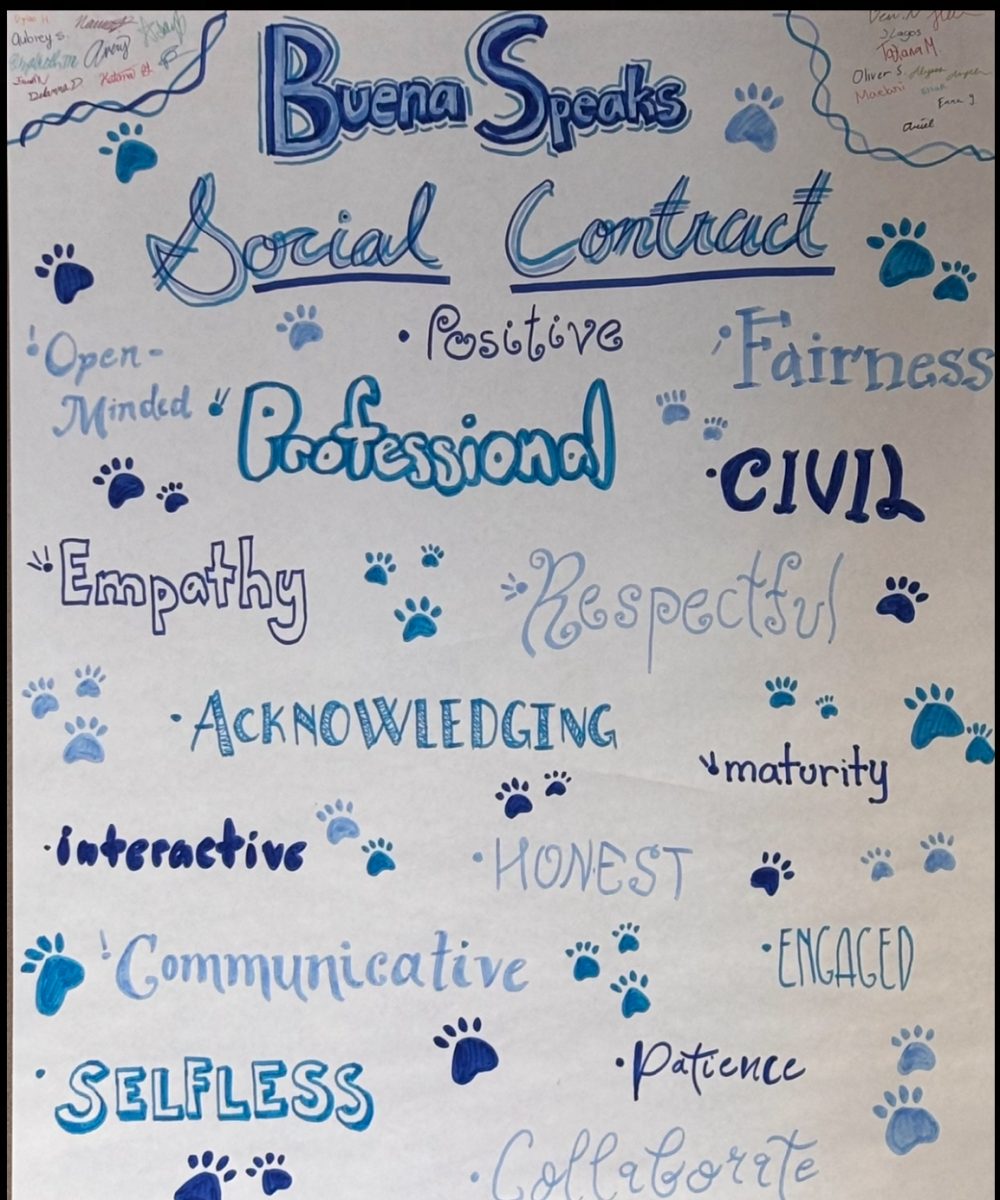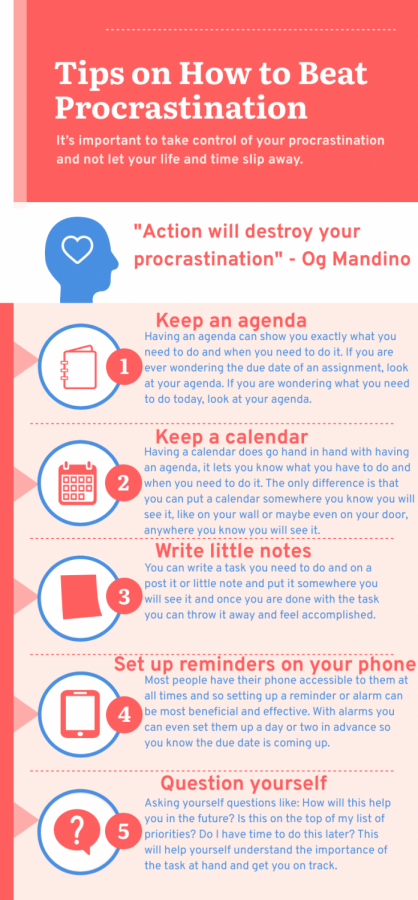How to beat procrastination 101
November 22, 2021
Everyone has experienced a time, whether in school or work, where they have delayed something important until the last minute, but little did we know there are some simple steps we can take to help overcome procrastination.
No matter your age, everyone tends to hold off on doing what is important because you may not have the desire or motivation to do it, which can greatly affect your work quality. Taking control of your procrastination, rather than it controlling you, will benefit you and your endeavors.
“Having the motivation and time to do school when I would rather do other things has been the main problem,“ junior Madison Fennell said.
For some students, doing school work is not high up on their list of priorities.
“I have tried doing daily agendas,“ Fennell said. “Knowing what I need to do has helped.”
Having a visual of your tasks is helpful, being able to see what you need to get done can help you keep track of what you have or have not done. A visual can also help you remember what needs to get done and motivate you to get your tasks finished.
“The students that are very organized and have lists and calendars,” Cody Foster said. “Those tend to be the students that actually do things on time and do not procrastinate. ”
It is important to understand that at times you will not always be able to get everything done. Having a checklist that has the most important tasks at the top will help you prioritize and ensure that you will at least be able to get the most pressing matters done.
A common misconception about procrastination is that only lazy or unmotivated individuals procrastinate. Sometimes procrastination occurs out of necessity when the amount of time to complete the items on your to-do list overcomes the amount of hours in the day.
“ Procrastination to me is not necessarily because of laziness, ” AP Biology teacher Cody Foster said. “ It’s more because I have too much on my plate. ”
Cody also suggests that you should question yourself. Ask yourself how this will help you, not just in the moment but how it will help you in the future if you get what you need done at that moment instead of telling yourself that you will get to it later.
According to Aimee Foster, who teaches Study Skills, a good way to keep yourself from procrastinating is by setting up multiple reminders on your phone. Not only when you need to do it, but also a day or two ahead of time to remind yourself beforehand.
“It’s kind of like when people hit snooze,” Aimee Foster said. “They purposely set a certain amount of alarms.”
Another suggestion from Aimee Foster would be to make small lists so that when you are finished you can throw it away and feel a sense of accomplishment. This can be helpful since a long list can make you want to put off doing what you need to, which defeats the purpose of making a list.
“The biggest thing is figuring out what is best for you,” Aimee Foster said.













































































